Drone battery life is a crucial consideration for every drone enthusiast, whether you’re capturing breathtaking landscapes, conducting vital surveys, or simply enjoying the thrill of flight. How does a drone battery last? This is one common question every drone lover asks before investing in drones. Be it FPV, racing, or long-range drone, the battery life matters. From flight time to improved drone battery life, this blog post will explore everything you need to know about drone batteries.
How long does a drone battery last?

The duration of a drone battery largely depends on its capacity, and it plays a crucial role in your drone’s flight time.
A drone with a 2,000mAh battery offers a flight time of about 12 to 15 minutes. These drones are good for quick aerial tasks and casual flying.
A drone featuring a 5,000mAh battery significantly extends flight time, usually around 25 to 30 minutes. This is ideal for various recreational and even some professional applications.
If you want to buy a drone with a 10,000mAh battery, you can enjoy an extended flight time, stretching to approximately 40 to 45 minutes. This is particularly beneficial for tasks that demand prolonged aerial coverage.
For those needing extensive flight durations, a 20,000mAh battery becomes essential. This power source allows drones to stay airborne for 60 minutes or more, making it perfect for specialized missions.
Flight time can vary based on factors like drone weight, environmental conditions, and power usage.
How long does the fpv drone battery last?
Here is a brief overview of FPV drone battery durations based on capacity.
450mAh Battery
This small battery typically offers a flight time of around 3 to 4 minutes, ideal for micro FPV drones for short and exciting flights.
650mAh Battery
Slightly larger, this battery can keep your FPV drone in the air for about 5 to 6 minutes, providing more flying time for indoor or beginner outdoor flights.
1,000mAh Battery
With this capacity, you can expect flight times of 8 to 10 minutes, making it suitable for both indoor and outdoor FPV flying.
1,300mAh Battery
Stepping up, this battery extends flight times to approximately 12 to 15 minutes, offering more freedom for exploring the skies.
1,800mAh Battery
A battery of this size can provide an FPV drone with flight times of about 18 to 20 minutes, ideal for longer outdoor adventures and capturing aerial footage.
2,200mAh Battery
Going larger, this battery can keep your FPV drone airborne for approximately 25 to 30 minutes, making it great for extended flights and filming sessions.
LiPo vs Li-ion Batteries for Drones

Lithium polymer (LiPo) and lithium-ion (Li-ion) batteries are the two most common types of batteries used in drones. Both types of batteries have their own advantages and disadvantages.
LiPo batteries are lightweight and have a high energy density, meaning they can store a lot of energy in a small, lightweight package. LiPo batteries are also relatively inexpensive.
However, LiPo batteries are more sensitive to temperature changes and can be more dangerous if damaged.
Li-ion batteries are heavier than LiPo batteries but have a longer lifespan and are less likely to catch fire. Li-ion batteries are also less sensitive to temperature changes.
However, Li-ion batteries are more expensive than LiPo batteries.
LiPo vs Lion Drone Batteries Comparison
Feature
Energy density
Specific energy
Specific power
Cycle life
Discharge rate
Self-discharge
Operating temperature
Weight
Voltage
Capacity Options
Lifespan
Charging Speed
Maintenance
Price
LiPo
High
110-200 Wh/kg
1000-3000 W/kg
300-500
High
5-10% per month
0-45 °C
Lightweight
3.7V per cell
Different capacities
Shorter lifespan
Fast
Needs careful handling
Affordable
Li-Ion
Medium
80-150 Wh/kg
200-400 W/kg
500-1000
Medium
2-4% per month
-20-55 °C
Moderate
3.6V per cell
Limited capacities
Longer lifespan
Moderate
Less sensitive
Moderate price
How long does a drone battery last on a single charge?
Most drone batteries last between 20 and 30 minutes on a single charge. However, drones with high-capacity batteries can last up to 45 minutes or longer.
What factors affect drone battery life?
There are different factors influencing your drone battery life. Here are the most important ones.
Battery Capacity
A key factor is the battery’s capacity, measured in milliampere-hours (mAh). Batteries with higher capacities generally provide longer flight times.
Drone Size and Weight
Larger drones carry bigger batteries, offering extended flight times. Heavier drones consume more power to stay aloft.
Flying Conditions
Windy conditions and harsh weather need more power to stabilize the drone, reducing battery life.
Flying Style
Aggressive maneuvers, like rapid ascents and descents, consume more energy than steady, gentle flights. If you are looking for aggressive flying, try the best racing drones.
Payload
Attachments like cameras or additional equipment can add weight and drain the battery more quickly.
Temperature
Extreme cold or hot temperatures can affect battery efficiency. LiPo batteries, mostly used in drones, perform best at moderate temperatures.
Battery Health
Over time, batteries degrade, leading to reduced capacity and flight time. Proper storage and maintenance are essential for battery longevity.
How to extend drone battery life?
You can improve your drone’s battery life and enjoy longer flights by following these tips.
- Use efficient flight modes and avoid aggressive maneuvers.
- Fly in calm weather to reduce energy consumption.
- Minimize extra weight like cameras or accessories.
- Select a high-capacity battery for longer flights.
- Keep Batteries Healthy: Store and charge them properly to maintain capacity.
- Preheat batteries in cold weather for better performance.
- Avoid flying too far, as returning drains less power.
Jose E. Johnson is a true tech prodigy whose lifelong passion for technology and gadgets has blossomed into remarkable drone expertise. From the moment he laid eyes on his first electronic toy as a child, Jose was captivated by the limitless possibilities of innovation. As he grew, so did his fascination with cutting-edge tech, leading him to become a bona fide drone expert. With an insatiable thirst for knowledge, Jose delved deep into the intricacies of drone technology, amassing a wealth of technical knowledge and hands-on experience. Now, he shares his wisdom through insightful drone reviews and invaluable tips for fellow enthusiasts, making him a trusted source in the drone community.

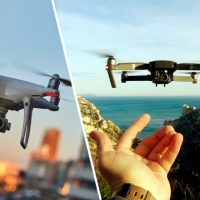
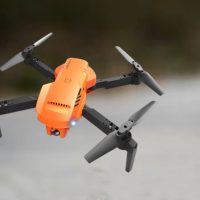
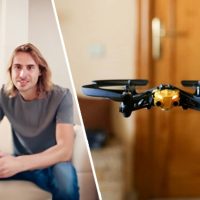
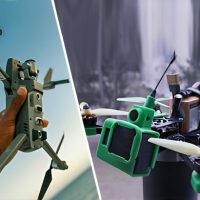
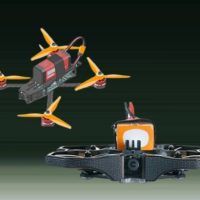
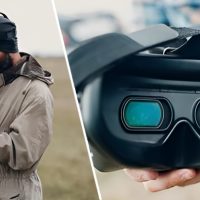
Leave a Reply